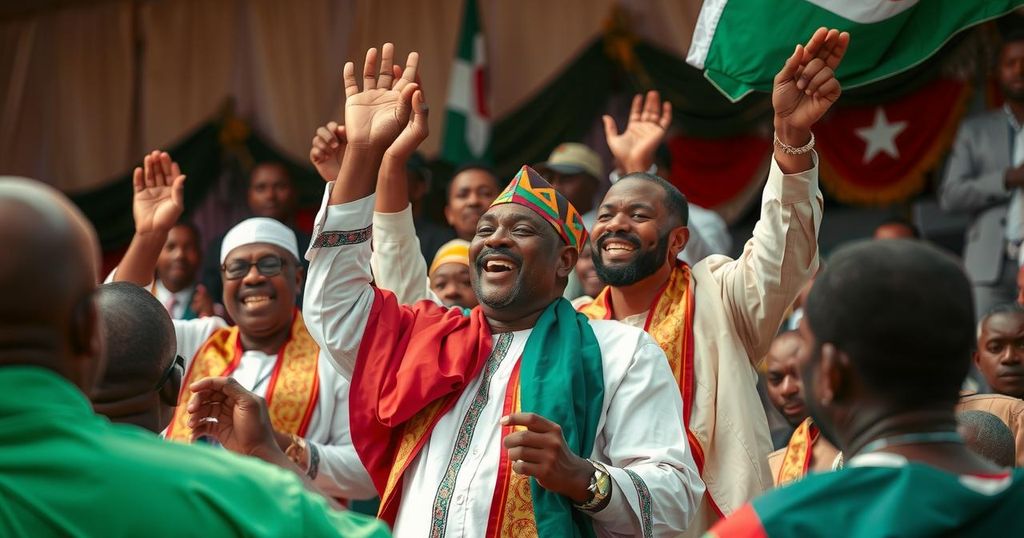Chad’s Ruling Party Achieves Majority in Historic Parliamentary Elections

Chad’s ruling Patriotic Salvation Movement secured 124 out of 188 seats in the recent parliamentary elections, held for the first time in over a decade. The election marked a significant step in the country’s transition to democracy after Mahamat Idriss Deby’s military takeover in 2021. Despite a 51.5% voter turnout, the election was largely boycotted by key opposition parties. Deby emphasized that these elections would facilitate desired decentralisation of power amid ongoing security challenges.
In the recent parliamentary elections held in Chad, the ruling Patriotic Salvation Movement (PSM) secured a significant majority, winning 124 of the 188 available seats. This election, the first of its kind in over a decade, saw a modest voter turnout of 51.5%, as reported by Ahmed Bartchiret, the head of the electoral commission. Notably, the election was marked by the absence of participation from over ten major opposition parties, including the Transformers party, which had previously contested the presidential election.
This parliamentary election represents the culmination of Chad’s transition towards a democratic governance structure, which began following the ascension of Mahamat Idriss Deby as a military ruler in 2021. This transition gained momentum after the passing of his father, Idriss Deby Itno, who had maintained power for thirty years. Although Mahamat Idriss Deby had previously faced criticism during the disputed presidential elections last year, he now contends that the recent parliamentary election paves the way for decentralising power, a shift he asserts is long desired by the Chadian populace.
Chad is currently navigating multiple security crises, including threats from Boko Haram in the Lake Chad region and a rupture of its long-standing military relations with France, its former colonial ruler. In this critical context, the ruling party’s majority positions it to shape the country’s governance during a notably turbulent period. The main opposition groups have yet to react officially to the election outcomes, leaving analysts to speculate on the potential implications for Chad’s political landscape moving forward.
Chad has officially embarked on a democratic transition process following the military takeover by Mahamat Idriss Deby in 2021. His assumption of power followed the death of his father, Idriss Deby Itno, who ruled for three decades. The country’s first parliamentary elections in over ten years signify a pivotal moment in this transition, particularly as they occur amidst rising security concerns and a significant boycott from prominent opposition parties. The call for decentralisation by the current leadership marks a critical policy shift aimed at distributing power beyond central authority, reflecting public demands for governance reform.
The 2023 parliamentary elections have underscored Chad’s ongoing transition towards democracy, with the ruling Patriotic Salvation Movement emerging as a dominant force amidst the boycott by major opposition parties. While the elections present an opportunity for decentralisation and democratic governance, they unfold in a context overshadowed by security challenges and potential ramifications for the political stability of the nation in the coming years.
Original Source: www.trtworld.com







